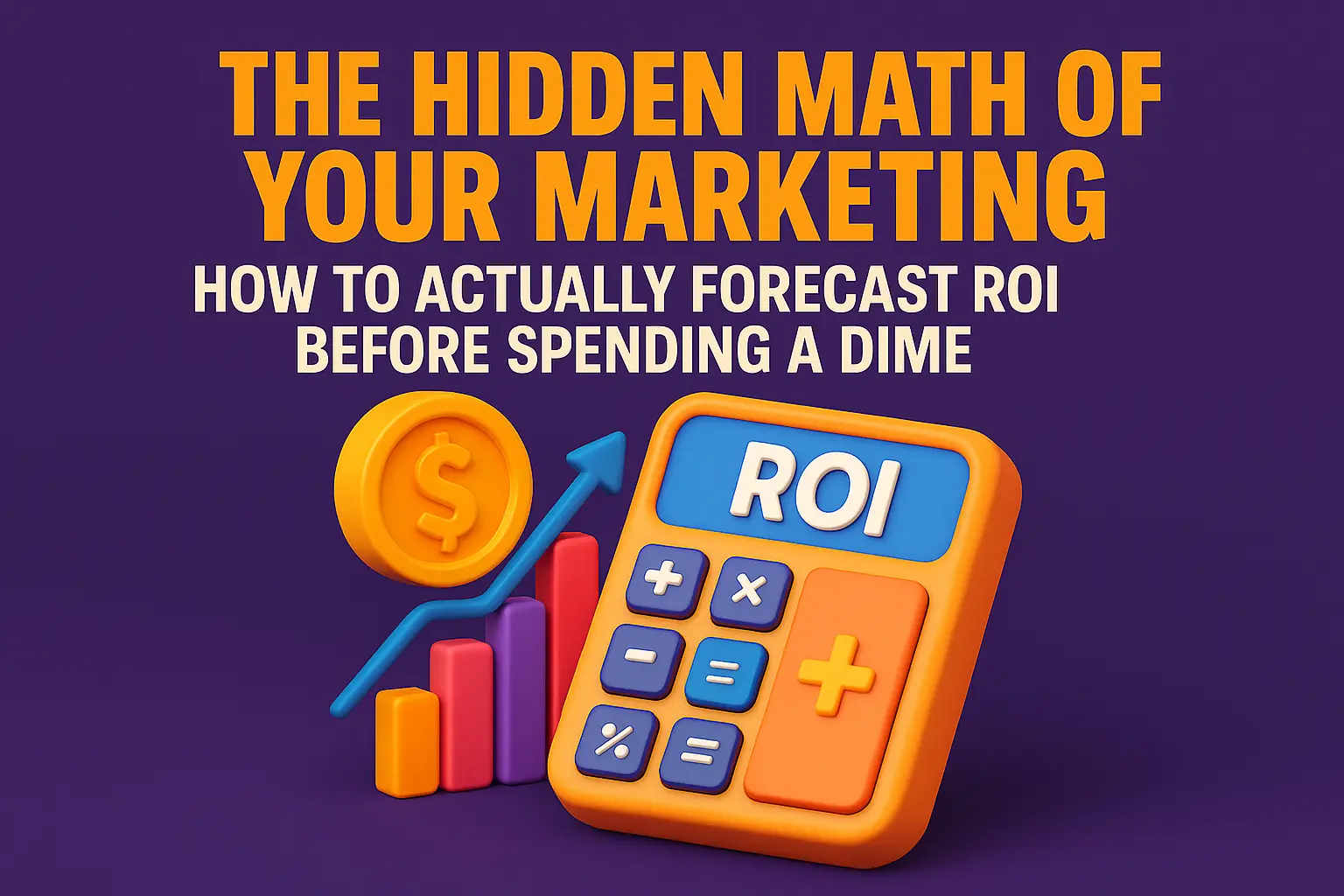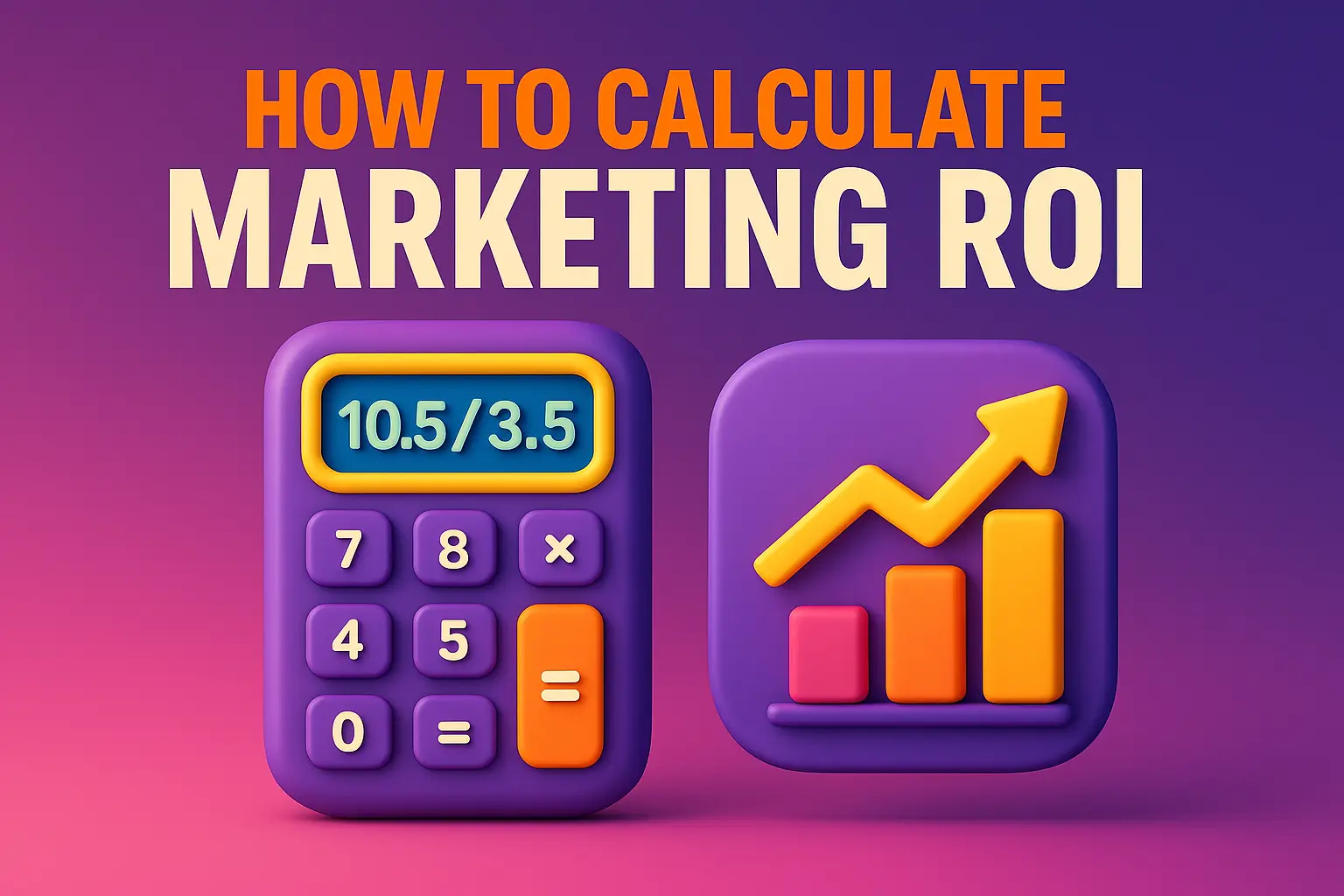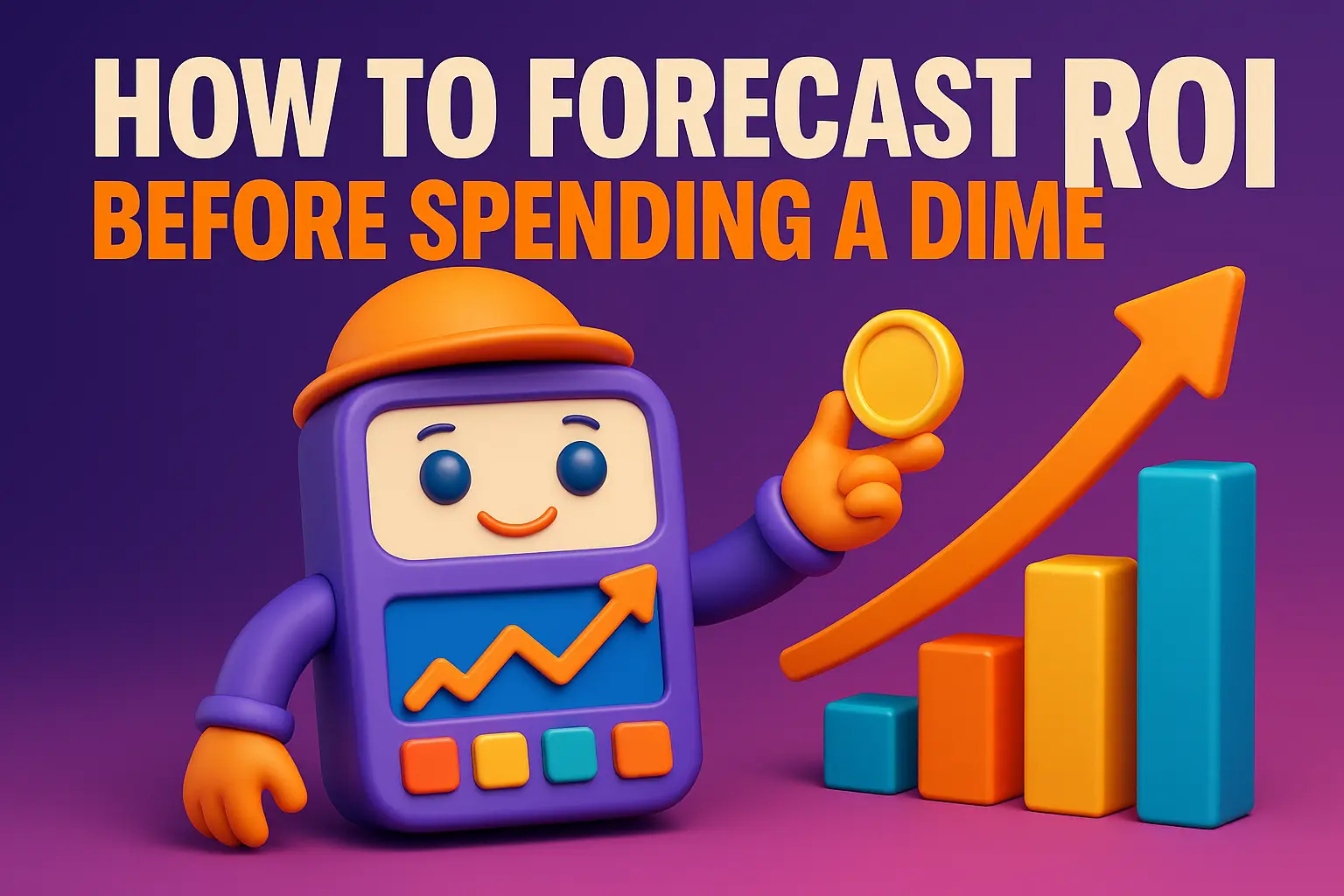

Let’s be real: Most marketing plans start with a feeling — not a formula.
Something like, "Let’s just boost a post and see what happens," or "We’ll know it’s working when our phones explode." And just like that, we’ve entered the marketing Twilight Zone — where money disappears and metrics go to die.
But here’s the truth most agencies won’t tell you: Marketing is math before it’s magic.
Before you throw another dollar into ads, influencers, or a rebrand that no one asked for — let’s break down the numbers that actually matter. You don’t need a finance degree. Just a brain, a calculator, and a little willingness to stop winging it.
ROI (Return on Investment) is usually treated like a post-mortem.
You spend the money. Run the ads. Launch the thing. Then look at the aftermath and ask, "Did it work?"
By then, the money’s gone. And your marketing partner is already ghosting you harder than your ex in 2013.
Instead, ROI should be forecasted before you ever touch your budget.
Marketing should never feel like gambling. Unless you’re into that. In which case, may the PPC gods be ever in your favor.

If you don’t know these, you’re not doing marketing. You’re just donating to Mark Zuckerberg’s yacht fund.
What it is: How much a customer is worth to you over the full relationship.
Why it matters: This tells you how much you can afford to spend to get one.
Quick formula : Average purchase x Purchase frequency x Average lifespan
Example: $100 average ticket × 3 purchases/year × 5 years = $1,500 CLV
What it is: How much it costs to land a single customer.
Why it matters: If your CAC is higher than your CLV… you're scaling failure.
Quick formula: Total marketing/sales spend ÷ New customers acquired
Example: $3,000 spent ÷ 10 new customers = $300 CAC
What it is: The % of people who take action (buy, call, sign up, etc.) after seeing your marketing.
Why it matters: This affects how many people you need in your funnel to hit your revenue goals.
Quick formula:(Conversions ÷ Total Visitors) x 100
Industry average: Varies by channel. Websites: 2–3%. Landing pages: 5–10%. Email: 1–5%.
What it is: Return on ad spend that covers your costs.
Why it matters: This is your baseline target. Anything higher = profit. Anything lower = you’re paying to lose.
Quick formula:1 ÷ Gross margin
Example: 60% margin → 1 ÷ 0.6 = 1.67 ROAS
What it is: How much you’re paying per click/view/lead based on your channel.
Why it matters: You can reverse-engineer how many people need to see your offer to hit your target.
Ballpark examples:

Here’s how you build your prediction:
Now you’re forecasting. Not guessing.
You can’t scale to the moon on $1K/month. But you can:
It’s your starter budget. Not your forever budget.
If your agency can’t show you this math before you spend a dime, they’re not strategists — they’re spending your budget to learn.
At DMA, we build ROI forecasting into every strategy call. Before we write a headline. Before we pick a channel. Before we pitch a pixel.
Want to see what your growth could look like?
Book a Complimentary Strategy Audit →
We’ll break the numbers down. You’ll leave with a roadmap. Whether you work with us or not.
(But let’s be honest — you’ll probably want to.)